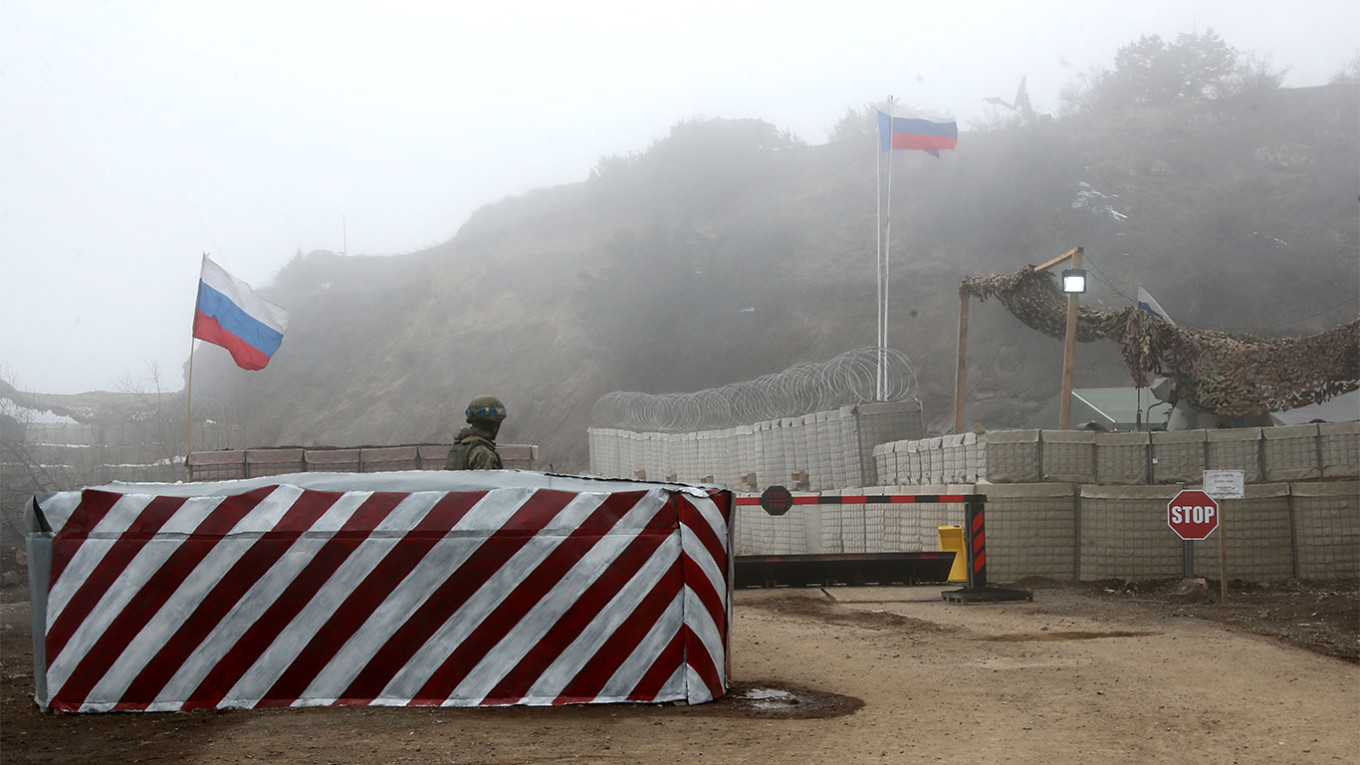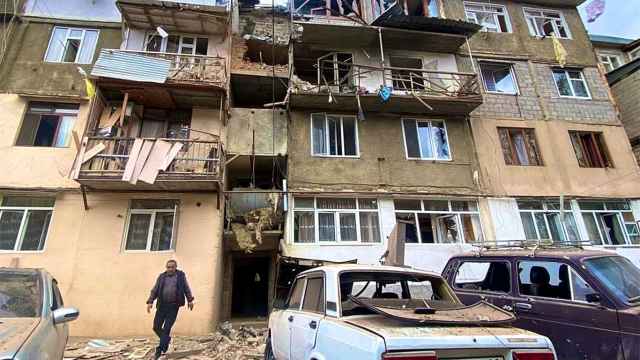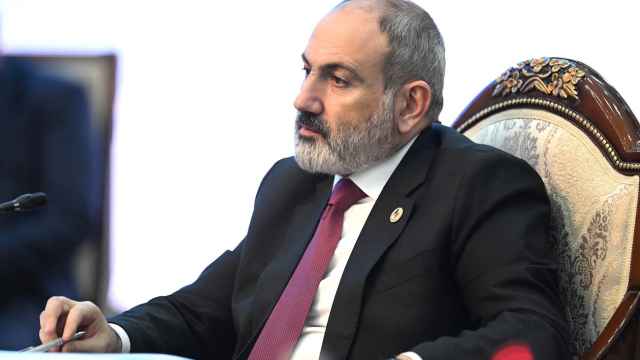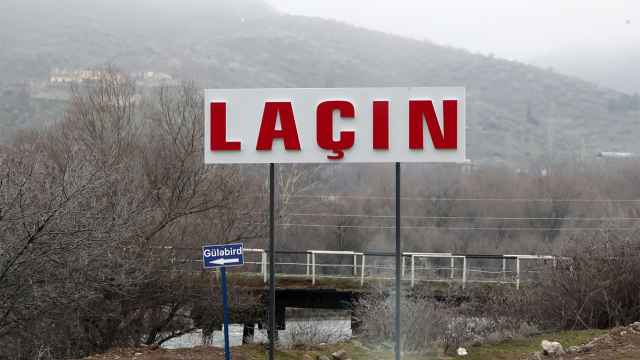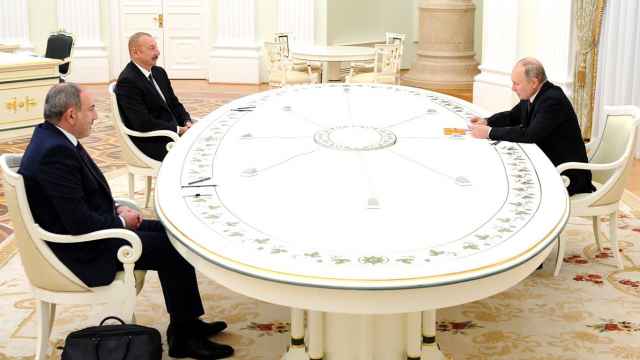The Kremlin confirmed Azerbaijani media reports on Wednesday that Russian peacekeepers have started withdrawing from Nagorno-Karabakh after Baku's forces seized the disputed region from Armenian separatists last year.
“Yes, that’s really true,” Kremlin spokesman Dmitry Peskov told reporters after the Azerbaijani news website Musavat reported on the Russian pullout Tuesday.
Unverified footage shared on Azeri-language social media claimed to show a convoy of Russian-flagged military vehicles moving out of the North Caucasus region.
Russia in November 2020 deployed around 2,000 military personnel and 90 armored personnel carriers to Nagorno-Karabakh after Armenia and Azerbaijan agreed to a Moscow-brokered deal to end weeks of fierce fighting.
The Russian peacekeepers’ role came under scrutiny for refusing to interfere as Azerbaijan completed its takeover of Nagorno-Karabakh in a lightning one-day offensive in September 2023.
The offensive triggered a refugee crisis of nearly the entire population of 100,000 ethnic Armenians leaving the region for Armenia.
The territory is internationally recognized as part of Azerbaijan but was home to a majority Armenian population and controlled by pro-Yerevan separatists for nearly three decades.
The conflict has ruptured ties between traditional allies Russia and Armenia, with Moscow maintaining warm relations with Azerbaijan. Arch-foes Armenia and Azerbaijan are currently trying to broker a broader peace agreement that could see Baku gain control of yet more disputed territory.
Armenian Prime Minister Nikol Pashinyan said recently that Yerevan had de facto suspended its participation in the Moscow-led Collective Security Treaty Organization (CSTO) — a defense alliance.
He has repeatedly criticized Russia for not stepping in to support his country in the face of what he says is Azerbaijani aggression.
AFP contributed reporting.
A Message from The Moscow Times:
Dear readers,
We are facing unprecedented challenges. Russia's Prosecutor General's Office has designated The Moscow Times as an "undesirable" organization, criminalizing our work and putting our staff at risk of prosecution. This follows our earlier unjust labeling as a "foreign agent."
These actions are direct attempts to silence independent journalism in Russia. The authorities claim our work "discredits the decisions of the Russian leadership." We see things differently: we strive to provide accurate, unbiased reporting on Russia.
We, the journalists of The Moscow Times, refuse to be silenced. But to continue our work, we need your help.
Your support, no matter how small, makes a world of difference. If you can, please support us monthly starting from just $2. It's quick to set up, and every contribution makes a significant impact.
By supporting The Moscow Times, you're defending open, independent journalism in the face of repression. Thank you for standing with us.
Remind me later.


